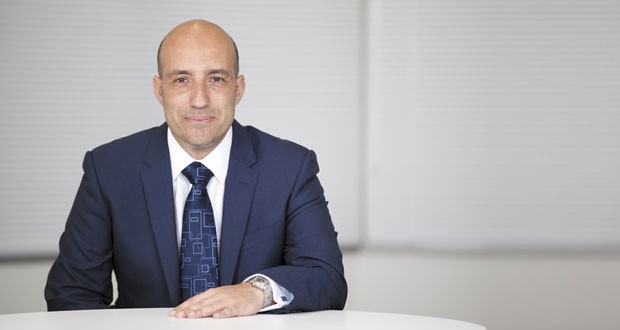Ross Abbate, CEO for Mace Operate explains to Sara Bean why Mace’s facilities management business is putting purpose at the heart of everything they do
While the FM sector has risen to the challenges of the past year, like the rest of the global economy, it now faces dealing with aftermath of the lockdown. Yet despite this, over the past year, global consultancy and construction business Mace has made some bold decisions regarding its FM division. Since its inception in 2002 the division has seen steady international growth and has over 1,000 employees globally, operating in over 45 countries from four regional hubs. It was confirmed in May 2020 that the original ‘Macro’ brand was switching to ‘Mace(i)’, with the idea being, that adopting the Mace corporate identity would help build on the Group’s existing strategic client base.
Mace has now announced an ambitious 2026 Business Strategy with three new strategic priorities: to pursue a sustainable world, to grow together and to deliver distinctive value. Talking to Ross Abbate, CEO for Mace Operate about the changes we asked, was the COVID-19 crisis the impetus for the brand change or part of a longstanding integration plan?
“It was always part of our target operating model”, explains Abbate. “We decided we couldn’t wait forever so thought we’d get it done anyway, because from a branding perspective we could demonstrate we were part of the Mace Group, a £1.8 billion organisation which operates all over the world. Now that the rebranding has been a success, with our latest announcement we’re aiming to demonstrate we’re putting purpose at the heart of everything we do.”
Mace’s Operate division delivers services to public and private sector clients, working with key workplace clients to support their corporate real estate strategies. It provides FM management and consultancy services on workplace experience, portfolio efficiency and asset management to some of the world’s most high profile corporate real estate clients.
BUSINESS TARGETS
The new strategy sets out a clear vision of forging a more sustainable and inclusive business model. This includes some ambitious new growth targets that will see it work to drive a 20 per cent growth in margin each year, a target to achieve £3 billion in annual revenue and the aim to employ more than 8,000 people by 2026 across Mace’s four ‘engines for growth’: Develop, Construct, Consult and Operate.
The plan is to increase Operate’s’ global presence in the development, infrastructure, built environment and operations markets. Across these markets, Abbate explains that working closely with the Mace group will bring mutual benefits.
“Within the FM consultancy, we do a lot of work upfront with the construction side, advising on the operational element of the building. But it can work the other way, with consultancy bringing good ideas and best practice into the wider business by carrying out some independent reviews of our operations and clients and suggesting best practice. This is all a value add for our clients and that model is how we’ve moved into new regions, starting with FM consultancy and then moving into the delivery of services.”
The five-year goal is to build Operate’s’ presence in a number of key countries and regional markets across the world, driving further growth in its mature businesses in North America, UK & Europe and Middle East; as well as continuing to build a presence in growth areas like Asia Pacific. The aftermath of COVID-19 is fuelling a worldwide review of the value of the workplace argues Abbate, and a subsequent growth in demand for more cohesive services.
He says: “I think the pandemic has opened up a conversation on activity-based working, and advising on how to build the solution around it. What we’re finding in consultancy and in construction is that everyone is talking about the workplace and the key elements needed to create it, which Mace is very good at.
“But then you’ve got to deliver the services to it, and go in and change the culture to make it work. With our consultancy business we can change the culture, with construction we can build the place, and Operate sits right in the centre of that, which is to make the workplace operate the way we want it to operate.”
PURPOSE-DRIVEN GOALS
While the business goals are pretty substantial, the new five-year plan also has some ambitious targets to build on the societal changes brought about by both the global climate emergency and the impact of the Coronavirus pandemic. The new strategy therefore sets out a clear vision of a more sustainable, and inclusive business model that puts purpose at its heart.
Says Abbate: “Last year the Group asked where it wanted to be and switched to a purpose led organisation, with sustainability and diversity at the centre of that. We’re all so aware of the human impact on the environment at the moment, as you can look at how we treated the environment and its correlation with the outbreak of COVID. If the world doesn’t stop negatively impacting the environment, we’re in danger of going through something like this again.
“This is a five-year plan and if you don’t put those ambitions out there you’re not going to make changes. For us we feel the built environment is going to be a huge issue because as a group we build buildings, so how do we give back and ensure our biodiversity is a positive rather than a negative one? This is why our strategy to achieve net zero carbon, ‘steps without footprints’, is helping us drive the sustainability agenda across the built environment, not just our organisation.”
 The Mace Group achieved its ambition to be a net zero carbon business in 2020, confirming in January of this year there was a 50 per cent reduction in the company’s carbon emissions across 2020, with measures including a 75 per cent increase in renewable energy, a 75 per cent reduction in business travel emissions, a ban on diesel generators and an increase in the use of cement alternatives. The plan now is to build on that success by aiming to achieve a 10 per cent year on year reduction in emissions and only offsetting the outstanding carbon to gold standards.
The Mace Group achieved its ambition to be a net zero carbon business in 2020, confirming in January of this year there was a 50 per cent reduction in the company’s carbon emissions across 2020, with measures including a 75 per cent increase in renewable energy, a 75 per cent reduction in business travel emissions, a ban on diesel generators and an increase in the use of cement alternatives. The plan now is to build on that success by aiming to achieve a 10 per cent year on year reduction in emissions and only offsetting the outstanding carbon to gold standards.
Explains Abbate: “As an organisation that has got to net zero carbon we’re doing a lot of work in identifying the base line for our clients and how we support them to achieve this goal. We can prove to them that this is an improvement that doesn’t cost you anymore, yet look at the benefits it brings to a business.”





